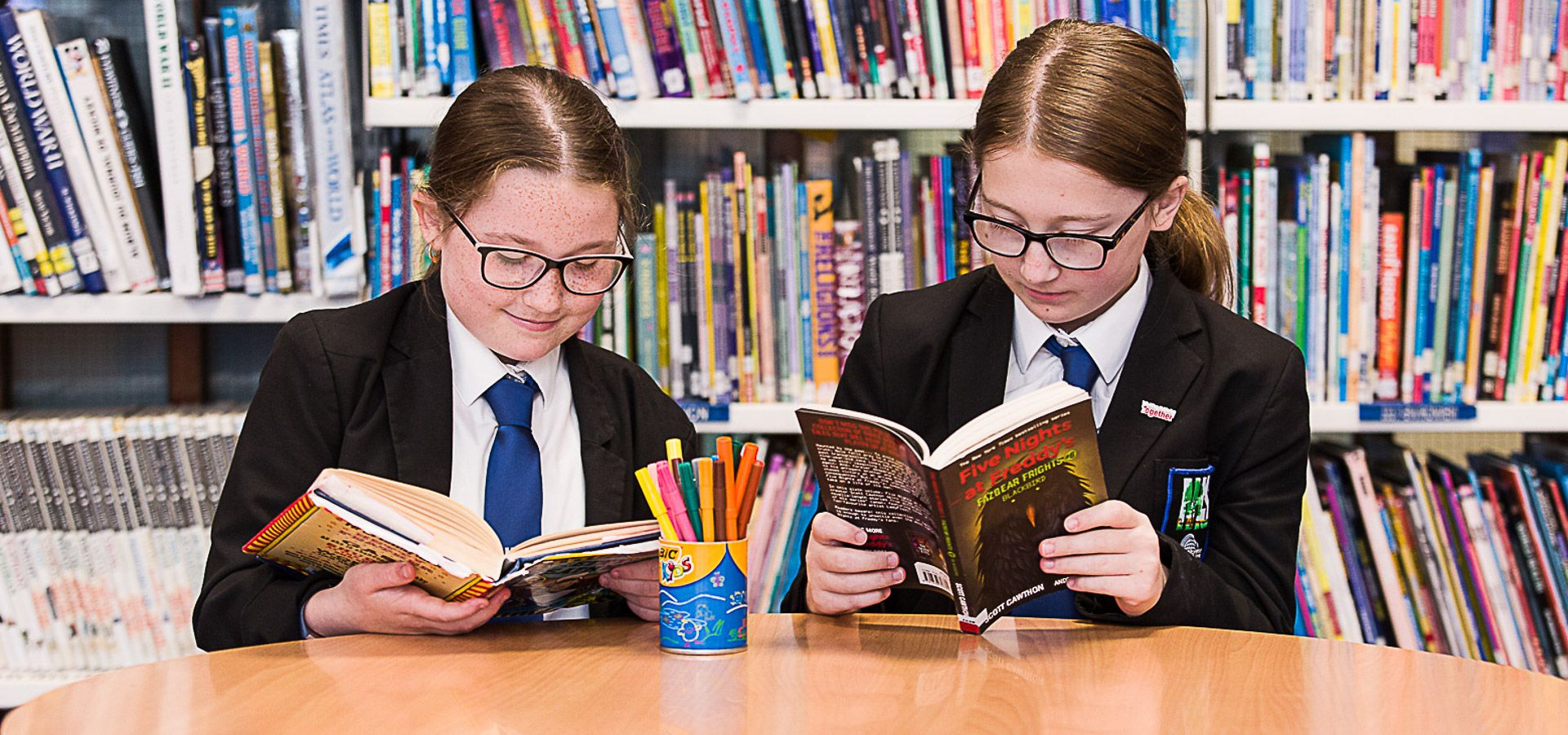With the continued need to develop students’ literacy skills beyond the English classroom, the greater proportion of marks being awarded for literacy in examinations and the knowledge that employers value good literacy in their staff, literacy is a significant focus within the school.
The school participates in Bedrock learning, a programme that builds students’ understanding of vocabulary in context. This is done within English lessons in Year 7 and 8, and for homework.
We have a range of literacy interventions that take place during tutor time each day, including Lexia, an online programme around word recognition and grammatical structures, a reading buddy programme where our younger students work with our older students, and small group reading, as well as a programme called Thinking Reading that targets those students who have a reading age two years below their chronological age. This programme takes place for certain students in KS3 and 4 and is led by our Reading Lead.
All departments support students in developing their appreciation of literacy and the subject they are in. This may be ensuring key words are spelt correctly, or making sure that each use of evidence has a ‘why’ to explain it. All departments are also aware of the literacy demands of their subjects and teach the key terminology, structures and writing styles that are essential to success. All teachers are also looking at reading fluency across within lessons. The aim with this is to allow students to see that literacy is important in all subjects, and that there are commonalities between all areas of the school. All students are tested at the beginning of each year to determine their reading age, and staff use this information to ensure that students are supported within their lessons and work is accessible for all.
Subjects are working on both key terminology that are essential to the subject, and tier two vocabulary that allows them to be more precise in their expression. Year 7 and 8 also take part in Bedrock learning, an online platform that furthers their vocabulary. This is both within their Library lessons and as homework each week.
Other important literacy work includes annual liaison between the school and our link primary schools. For example, staff from the school’s English Faculty have met with Key Stage 2 teachers to share examples of good practice in the teaching of literacy and marking for literacy. Our Year 10 students participate in the Jack Petchey Speak Out Challenge each year - www.speakoutchallenge.com and our school library leads World Book Day activities each March.

